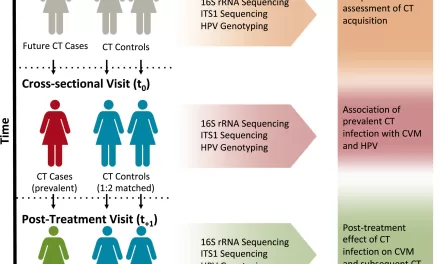A groundbreaking study has found a 16% increase in the proportion of babies born with congenital heart defects following the first year of the COVID-19 pandemic. The research, conducted by City St George’s, University of London, and published in Ultrasound in Obstetrics & Gynecology, examined over 18 million births in the United States.
The study revealed a significant rise in heart abnormalities, with cases increasing from 56.5 to 65.4 per 100,000 live births after the onset of the pandemic. Heart defects, the most common type of congenital anomaly, affect around 13 babies daily in the UK and one in 110 births globally. These conditions include abnormalities in heart valves, blood vessels, and holes in the heart.
Research Methodology
Researchers analyzed U.S. birth certificate data collected by the Centers for Disease Control and Prevention (CDC) between December 2016 and November 2022. They compared births before the pandemic (2016-2019) to those during the pandemic (2020-2022) and adjusted the data for maternal factors such as BMI, diabetes, blood pressure, age, and prenatal care timing.
To differentiate pandemic-related impacts, the team also examined cases of Down’s syndrome—a genetic condition unaffected by environmental factors like viruses. No significant changes in Down’s syndrome rates were observed, supporting the conclusion that the rise in congenital heart defects is linked to the pandemic rather than healthcare disruptions or other external factors.
Possible Causes and Implications
The study raises critical questions about whether the SARS-CoV-2 virus directly contributes to fetal heart abnormalities during pregnancy. Lead author Professor Asma Khalil emphasized the need for further research to determine the biological mechanisms behind these findings.
“Studying this large U.S. dataset has revealed an unexpected picture for how the pandemic has affected the hearts of unborn babies, but we need to untangle the reasons for this link,” Professor Khalil stated. “We need to determine if the SARS-CoV-2 virus directly causes the development of fetal heart problems during pregnancy, and if so, how the virus makes these changes in the heart.”
Importance of Vaccination
Professor Khalil urged pregnant women to prioritize COVID-19 vaccinations, particularly during winter when the virus is more prevalent. “Covid-19 is still circulating, and these results act as an important reminder for pregnant women to get their Covid-19 vaccinations to help protect themselves and their baby,” she said.
Call for Global Investigation
The study highlights the importance of replicating this research in other countries, including the UK, to confirm whether similar trends are observed globally.
As the long-term impacts of COVID-19 continue to unfold, this study underscores the necessity of safeguarding maternal health and advancing our understanding of the virus’s effects on fetal development.
Journal Reference:
Khalil, A., et al. (2024). Congenital heart defects during COVID-19 pandemic. Ultrasound in Obstetrics & Gynecology. DOI: 10.1002/uog.29126.
Source:
City St George’s, University of London











